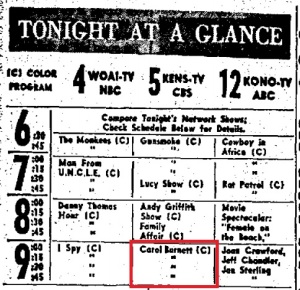We are reminded by his Excellency Gov. Hamilton, in his late
message that, “by the voice of the American people, assuming the form of
constitution law, slavery has been abolished, and he suggest, that this
radicals change should be fully recognized in the amended Constitution by
providing for the new condition of the freedmen, by giving them civil and
political rights on an equality with the white population of the State, and
that the enjoyment of these privileges should not depend upon the accident of
birth or color, and that should we fail to make these political privileges
depend upon rules of universal application, we will be betrayed into the error
of legislating under the influence of ancient prejudice, and that “any system
of laws intended to deprive the colored race of the actual fruits of liberty,
will meet with resistance from the Congress of the United States.”
The report of the majority entirely ignores these words of wisdom
and of patriotism. Instead of conforming to the new condition of affairs it
presents for our acceptance a pro-slavery provision of the Constitution adopted
in 1845, and retained in the amended Constitution of 1861.
The former Constitutions of Texas were framed so as to protect
the institution of slavery, and therefore consistently deprived the colored man
of the rights pertaining to citizenship; but now that slavery is abolished, our
relations to the colored race are materially changed.
Thos who were lately slaves, having “no rights which a white man was
bound to respect,” are now freemen, entitled to all the rights and privileges
of American citizens.
Under the slave system, these people enjoyed the protection of
their masters, whose interest impelled them to surround their property by all
necessary safe-guards; but now, this protection is withdrawn, and henceforth their
grievances are to be redressed by the law, and their rights maintained by our
Courts.
Born upon the soil, and attached to it by a variety of
association and interests, they will, despite our desires or our efforts to the
contrary, remain with us. As the cloud
of ignorance and oppression by which they have so long been overshadowed, is
gradually dispelled by education and the change in public sentiment, they will
enter into all the industrial and business pursuits of our people, and thus
become a power in the State, whose presence and influence cannot be ignored.
Our own interest therefore imperatively demands, that we should
deal justly by these people – that our laws should afford them ample protection
– that we should extend to them the hand of kindness, encourage their efforts
towards elevation, and do whatever may be necessary to make them good and
useful citizens, lest they become a pest and a scourge to society.
To extend to the freedmen the right of suffrage would elevate
them in their own estimation – give them increased importance in every
community, and would extend over them a shield so broad that it would
effectually protect them against wrongs and oppressions which they would
otherwise be subjected.
The colored people of our State constitute and important part of
the body politic; as citizens they will be called upon to sustain an equal
share of the public burthens, - in
common with other members of the community, they will be taxed to support the
government, and to pay their share of the debt incurred for their emancipation;
as property holders, they will have a permanent interest in the welfare of the
State, and if ever the necessity should arise, they will be required to shed
their blood in defence of our common country. Who then will say, that they should be deprived of the rights of
citizenship?
It has been suggested, that the mass of our colored people,
because of their ignorance and want of education, are unfit to exercise the
right of suffrage.
The same objection can, with equal force, be urged against a
certain class of white men, but no one pretends in their case, that the
objection is valid; and if we would avoid class legislation, we must make the
same rule apply to both.
If this objection be good as applied to the present generation of
blacks, it can not apply to the next, or to future generations, because the
General Government through the agency of the Freedmen’s Bureau has already
amply provided for their education, and when this bureau shall have been
withdrawn our own school system will continue the work so auspicious commenced,
and as we are legislating for generations to come, this objection is without
force and unworthy of further consideration.
WHITE MEN TO CONTROL NEGRO VOTES
We are also met the objection, that if we enfranchise the negro,
white men, and especially his late master will control his vote.
With this we have nothing to do; it is our duty and our business
to give him the right of suffrage, and his
to exercise it as he pleases. White men
are usually divided into political parties and if they have the control of
colored voters, the colored vote will be divided, and if the whites vote all
together, they will be no stronger if the colored men vote with them.
On large plantations, the relation of employers and employed may occasionally
operate to give the planter some undue control over the laborers. So it was formerly but falsely said, that
wealthy capitalists, who employed a large number of workmen, held them in
political bondage, but no one ever suggested this as a reason why they should
be disfranchised; but if the late slaveholders really believe they can control
the votes of their emancipated claves, I appeal to them to sustain my views,
that they may avail themselves of this new and important element of political
power.
WAR OF RACES
It is sometimes urged with
apparent solemnity, that if the negro is enfranchised, it would result in a war
between the two races.
One of the old arguments against emancipation, was the
anticipated terrible efforts were sure to follow the sudden liberation of the
slave. The freedmen were certain to
wreak their long pent up revenge, the moment they were released from bondage. This argument was used to prevent
emancipation in the British West Indies, and Senator Davis, of Kentucky, made free use of it in the United States Senate
to intimidate Congress, when it was disposed to give liberty to the slaves of
the District of Columbia. But notwithstanding this, freedom was not
withheld in either case, and was received by the emancipated with thanksgiving
and prayer, whose hearts were filled to overflowing with joy and gratitude, and
not with revenge, so that the evil predictions were not fulfilled, no war of races ensuing.
As the year 1865 drew to a close, the whole Southern country was
terrified by an apprehended war of races to be inaugurated during the coming
holidays. Under the slave system, this
had always been a season of alarm; dreadful forebodings took possession of
almost every Southern heart; but the season usually passed of without any
slaughter, save that which took place among the pigs and poultry in the barn
yards of the neighboring planters; but this
time there would be no mistake – the negroes were free – they could go where
they pleased and do as they pleased, and the bloody horrors of St. Domingo were
certain to be re-enacted. The eventful
days approached – Federal bayonets and Confederate home-guards were ready to
repel the first attack of the black hordes who were now to begin the war of
races. The holidays come, and all was
peace and quietness over the land, while hundreds of Southern fields, for the
first time during this merry-making season, were blackened by sable laborers,
who now, having a new motive for toil, were industriously preparing the soil for
future harvests. This again were the
cowardly and unmanly fears of the late slaveholding communities dispelled, and
the war of races was still further
postponed.
It is now proposed to take one more step towards the elevation of
the colored race by giving them the right of suffrage, and again are the hands
of his late oppressors raised in holy horror at another prospect of a war of
races, which must be inevitable, if this last mad act of fanaticism is
consummated. True, previous anticipations failed, but only give the negro the
right to vote, and war, with all is bloody horrors will sweep over the sunny
South like a destroying angel, filling the land with mourning – crimsoning
every cotton field and reddening every stream, while blazing towns and cities light
up the horrid scene with terrific grandeur! False friends of the colored man, stay your hands! Let him remain
half a slave that his race may be preserved.
Reason and argument having failed, thus do the opposers of this
last crowing act of emancipation feebly attempt to defeat the ends of justice
by again seeking to operate upon the fears of the timid, by once more raising
the absurd cry of a war of races!
Unworthy of serious consideration as this objection really is,
let us briefly examine it.
All the bloody feuds between the white and black races of which
history gives any account, were the result of injustice and oppression at the
hands of the superior race.
But who is now to begin this war of races? Certainly not the white man, for he will find
it his interest to be upon the best possible terms with the newly made
voters. The leading men, and the hosts
of political aspirants in every community, will suddenly find that these people
are entitled to respectful consideration, for voters are not to be slighted,
much less treated with indignity; and for this reason, they will every where
receive that kindness and attention which their political importance demands;
and at the polls their rights will be carefully protected by their white
political friends. Is it not therefore
clear that the white man will not begin this dreadful war of races? And is it not equally certain that the black
man will not begin it?
Men are not apt to make war upon their friends or upon those who
have conferred great and lasting benefits upon them; but the history of the
human race is full of bloody illustrations to the contrary. Wrongs and injustice many be submitted to for
a time, but the hour of retribution is certain to come; therefore, if we would
live in peace and harmony with the colored race, from which we cannot be
separated, and whose destiny is so indissolubly interwoven with our own, we
much do them no wrong, practice no injustice upon them, but being the superior
race, protect them from all harm and bestow upon them every right and privilege,
which their changed condition justly demands.
These people were called upon to defend with their lives, the
integrity of the Union, and thousands of them
are still under arms ready to perish in defence of their native land and they
are now everywhere clamoring for the right of suffrage. the last battle in Virginia
had scarcely ceased, before they held conventions in Petersburg,
Richmond and Alexandria, declaring by resolutions their
desire and their right to vote. Their example
was soon followed by the colored men of Tennessee,
Mississippi, Alabama,
North and South Carolina and Louisiana, who in large conventions have
demanded the same right. Their petitions
to Congress are of daily occurrence, while at the same time they are
maintaining at the seat of government a large and talented delegation of black
men, for the purpose of urging their claims upon Congress and the
President. Since the discussion on this subject
has commenced, Congress has, by an overwhelming majority pass a law giving
unconditional suffrage to the colored people of the District of Columbia.
This has the agitation of this question been commenced and
carried forward with extraordinary vigor; those who demand this right are
counted by millions, and let no man suppose that agitation will cease, or that
its fervor or intensity will abate, until their claims are satisfied.
Let us then learn wisdom from the history of the past, and
without compulsion from any quarter, cheerfully accord to our own freedmen, rights
and privileges, long unjustly withheld, thus insuring our peace and prosperity,
and their gratitude and friendship forever more.
In consideration of the importance of this subject, and the views
hereby presented, I respectfully bed leave to offer the following resolution:
That so much of the report of the Committee, as related to the
right of suffrage, be referred to a select committee, with instructions to
report an amendment, to provide for the prospective admission of the freedmen
to the right of suffrage.
E.
DEGENER

 The project to widen Commerce Street is begun. During the four year widening project on Commerce Street many buildings were either totally demolished or lost several yards of their original structure. The new five story Alamo National Bank building, was physically raised and moved back while work continued uninterrupted within it. With the movement of the bank building the entire project came to almost $1.5 Million. This is the equivalent to around $21 Million in today’s money. The city took pride in the transformation being undertaken to keep San Antonio as the number one city in Texas.
The project to widen Commerce Street is begun. During the four year widening project on Commerce Street many buildings were either totally demolished or lost several yards of their original structure. The new five story Alamo National Bank building, was physically raised and moved back while work continued uninterrupted within it. With the movement of the bank building the entire project came to almost $1.5 Million. This is the equivalent to around $21 Million in today’s money. The city took pride in the transformation being undertaken to keep San Antonio as the number one city in Texas.

